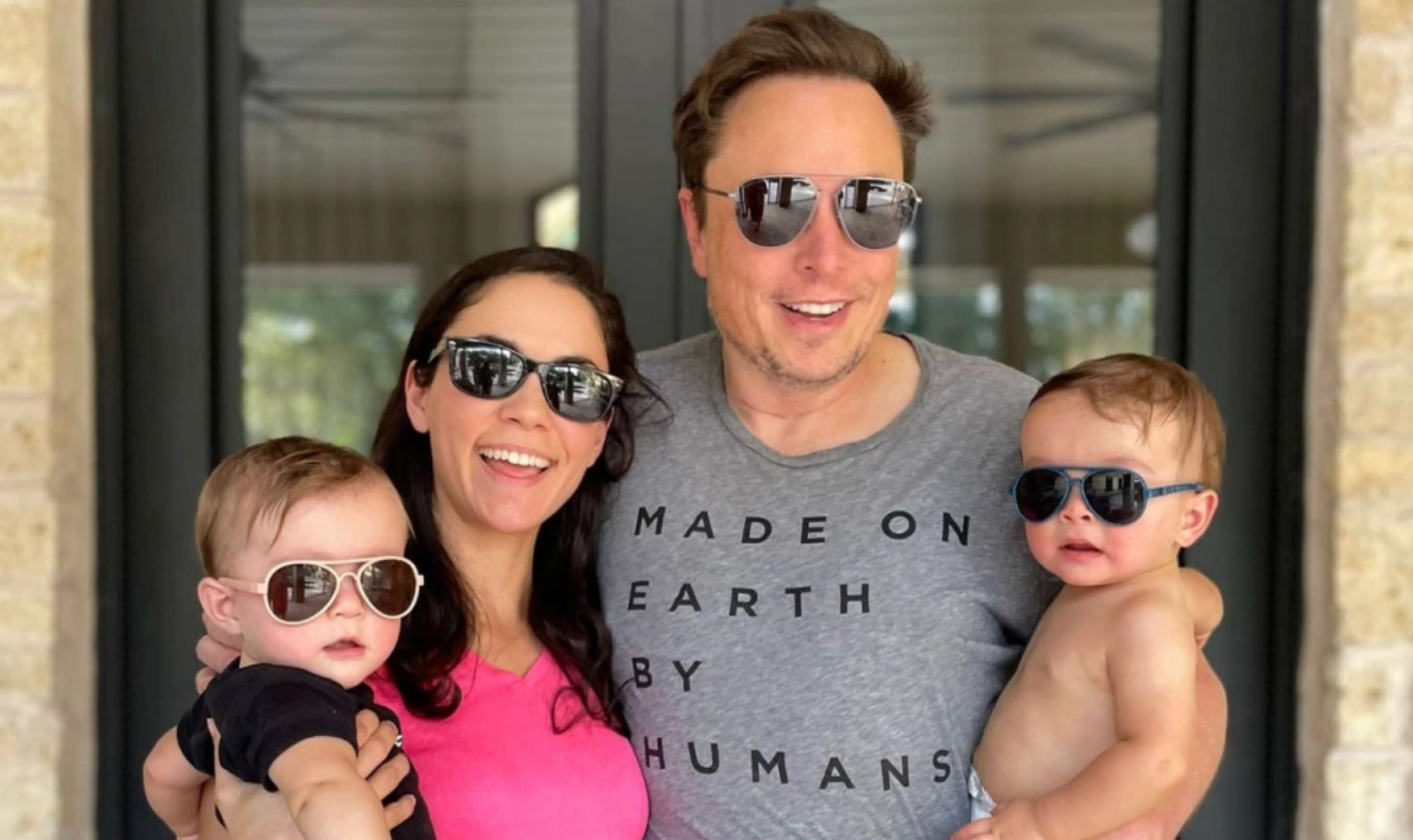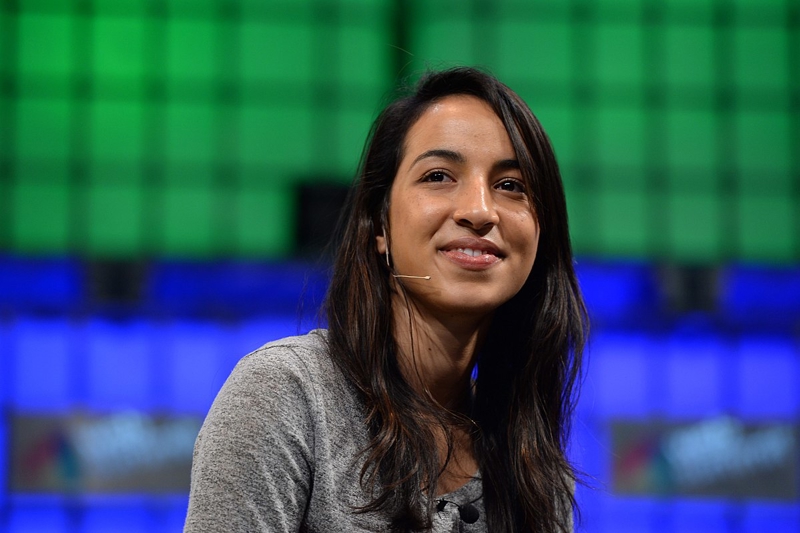“Super babies” created from the world’s most advanced embryo screening technology, Elon Musk also uses
The technology can analyze more than 99% of an embryo’s genome, while most current tests usually only reach about 0.25%. From there, creating the most elite “super babies”.
Late one evening last spring, a group of wealthy, powerful women in their 30s gathered at a fancy restaurant in Silicon Valley. Among the prominent faces was Shivon Zilis, a senior director at Neuralink, Elon Musk’s brain-chip technology company, who had secretly given birth to the billionaire’s child.
The dinner centered around the topic of pregnancy, but the conversation went beyond the usual motherhood conversation. They discussed a bold concept: fertility optimization and how technology could shape their children from the moment they were born.

Billionaire Elon Musk and his girlfriend Shivon Zilis with their two children Azure and Strider. Photo:X/Shivon Zilis
That’s also the service at Orchid Health, a startup that’s causing a stir in the tech world with its claim to be able to “create super babies.”
Orchid Health, based in San Francisco, is not your typical fertility company. They specialize in screening embryos at an unprecedented level, promising to detect thousands of potential future diseases. This allows prospective parents to “plan” their children with a level of genetic information that was previously only a dream.
“This is a huge leap forward in terms of the amount of information parents can have before they welcome a baby,” Noor Siddiqui, founder and CEO of Orchid, told CNBC in an interview. “How they use that information is up to each person, but it definitely gives them more control and confidence during their pregnancy.”
Orchid’s technology analyzes more than 99% of an embryo’s genome, while most current testing typically only covers about 0.25%, the company said in a press release.
Orchid Health’s technology goes beyond traditional genetic testing, which focuses on rare single gene mutations. By sequencing the entire massive three-billion-base-pair genome from just five cells of an embryo, the company claims it can screen for more than 1,200 single-gene conditions.
More notably, Orchid Health also uses a proprietary algorithm to create a “polygenic risk score,” which is said to be able to measure a child’s genetic predisposition to complex diseases like bipolar disorder, cancer, Alzheimer’s, obesity, and even schizophrenia.
“Orchid is ushering in a generation of genetically blessed and disease-free people,” Siddiqui wrote on X late last year. “Sex is for fun, embryo screening is for babies.”
Siddiqui said that as a child, her mother, now 30, was diagnosed with retinitis pigmentosa, a disease that leads to gradual vision loss and blindness. This inspired her to create a solution to screen for the disease early.
According to the Institute of Reproductive Health, IVF is an “expensive” procedure that can cost an average of more than $12,000 in the United States. IVF success rates are not guaranteed, and some people may need to go through multiple rounds of insemination before they become pregnant.
The company currently charges $2,500 for each embryo screening, plus an average of $20,000 for an IVF cycle. Silicon Valley and tech hubs are Orchid Health’s ideal target market, with people who are into biotech, use health-monitoring technology, and use expensive annual medical services.
“They feel comfortable with a new, promising world of probabilistic, data-driven medical decision-making, and are willing to pay extra to give their children a genetic advantage,” one expert told the Washington Post .
The company’s solution is now available in 100 IVF clinics in the US, more than double the number from a year ago. The company would not disclose how many babies have been born through its technology, only that the first baby supported by Orchid Health will be born in late 2023, named Japhy.
Zilis is one of Orchid Health’s clients. She is believed to have given birth to as many as four children with Musk, at least one of whom used the screening solution, according to The Information . Representatives for Orchid Health, Zilis, and Musk did not respond to requests for comment.
Orchid Health is seen as part of a broader cultural movement in which powerful people are promoting the importance of having children, including Vice President JD Vance, Musk and billionaire Peter Thiel – who want to push humanity to have more children. It is also giving a boost to the assisted reproduction industry.

Orchid Founder and CEO Noor Siddiqui at Web Summit 2014 in Dublin, Ireland
Not only does Orchid Health help people have children, it is also said to be able to shape their children’s futures in entirely new ways. But this is also controversial, with some critics arguing that the company’s polygenic scoring system is aiming for a form of modern-day eugenics, creating conditions for a world where the wealthy are born with superior intelligence and superior health, thereby dividing the rich from the poor from birth.
However, Siddiqui dismissed this claim. According to her, Orchid Health only helps prospective parents who are afraid to have children because of potential genetic disorders. Besides, the company’s solution only “screens for intellectual disabilities, does not predict or intervene on intelligence.”
Not only Orchid Health, many other companies in Silicon Valley have begun to have similar reproductive intervention solutions, such as Nucleus or Heliospect Genomics. The emergence of these startups is expected to help the service price become cheaper, reaching more and more users instead of just the current wealthy class.
Many fertility doctors and scientists have serious reservations about screening embryos using polygenic risk scoring, a technique that allows Orchid Health and other companies to predict future disease by linking clusters of hundreds or thousands of genes to disease outcomes, intelligence, and height. “Most human diseases are linked to many different genes, not just one,” one expert said.
The American College of Medical Genetics and Genomics says the benefits of screening embryos for polygenic risk are “unproven” and warns that clinicians “should not offer” this type of testing. However, the technology is improving, and it may one day be reliable.
News
The long-standing conflict between Rosie O’Donnell and Donald Trump flared up again after she called for the president to resign.
Rosie O’Donnell demands Trump’s removal from office over Kennedy Center honor in latest tirade White House previously said O’Donnell suffers…
Ella Langley Just Accomplished Something No Other Solo Female Country Artist Has in This Decade
Ella Langley has added another entry to the record books. The country singer’s track “Choosin’ Texas” has been collecting records…
Blake Shelton and John Legend’s Christmas party was chaotic. And the Christmas tree wearing a tattered cowboy hat was the highlight!
Blake Shelton’s Christmas Tree Topper Had John Legend Frazzled: “What Is This?” If only The Oddest Couple, starring The Voice Coaches, became a…
MICHAEL Buble has given fans a rare glimpse into his home life following his shock departure from The Voice.
Michael Buble gives rare glimpse into his home life as he releases surprise documentary after leaving The Voice The singer, 50, stepped…
The lawsuit involving a woman claiming to be Miley Cyrus’s mother has become even more outrageous after she decided to reveal the truth about the story.
Woman Who Claims To Be The Mother Of Miley Cyrus Reveals Why She Chose That Name…Except Miley Isn’t Actually Her…
The country singer admitted that he not only swam naked in Jason Aldean’s pool but also urinated in it.
Country music star admits he went skinny dipping and peed in Jason Aldean’s pool Country music singer Tyler Farr revealed…
End of content
No more pages to load












